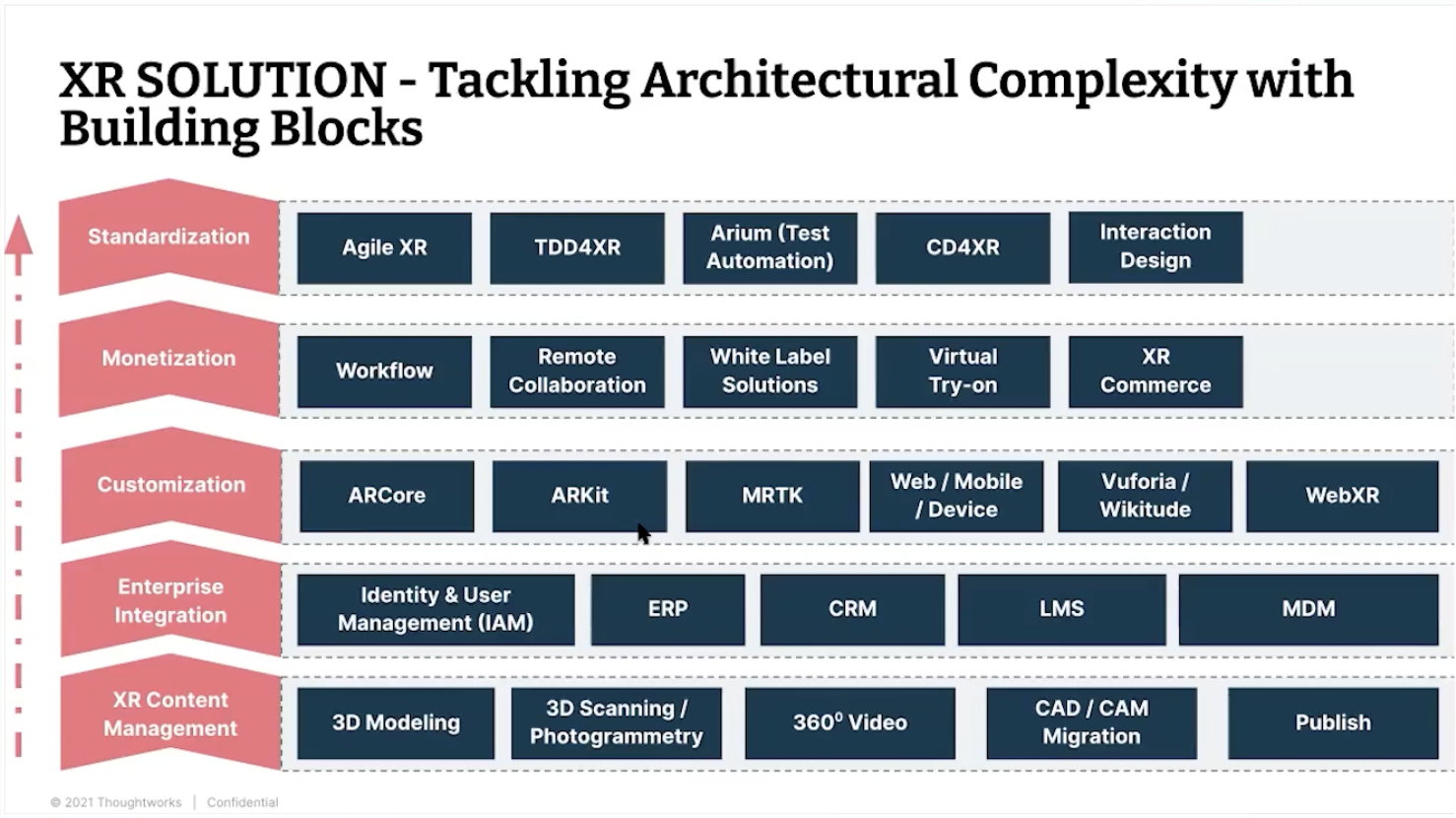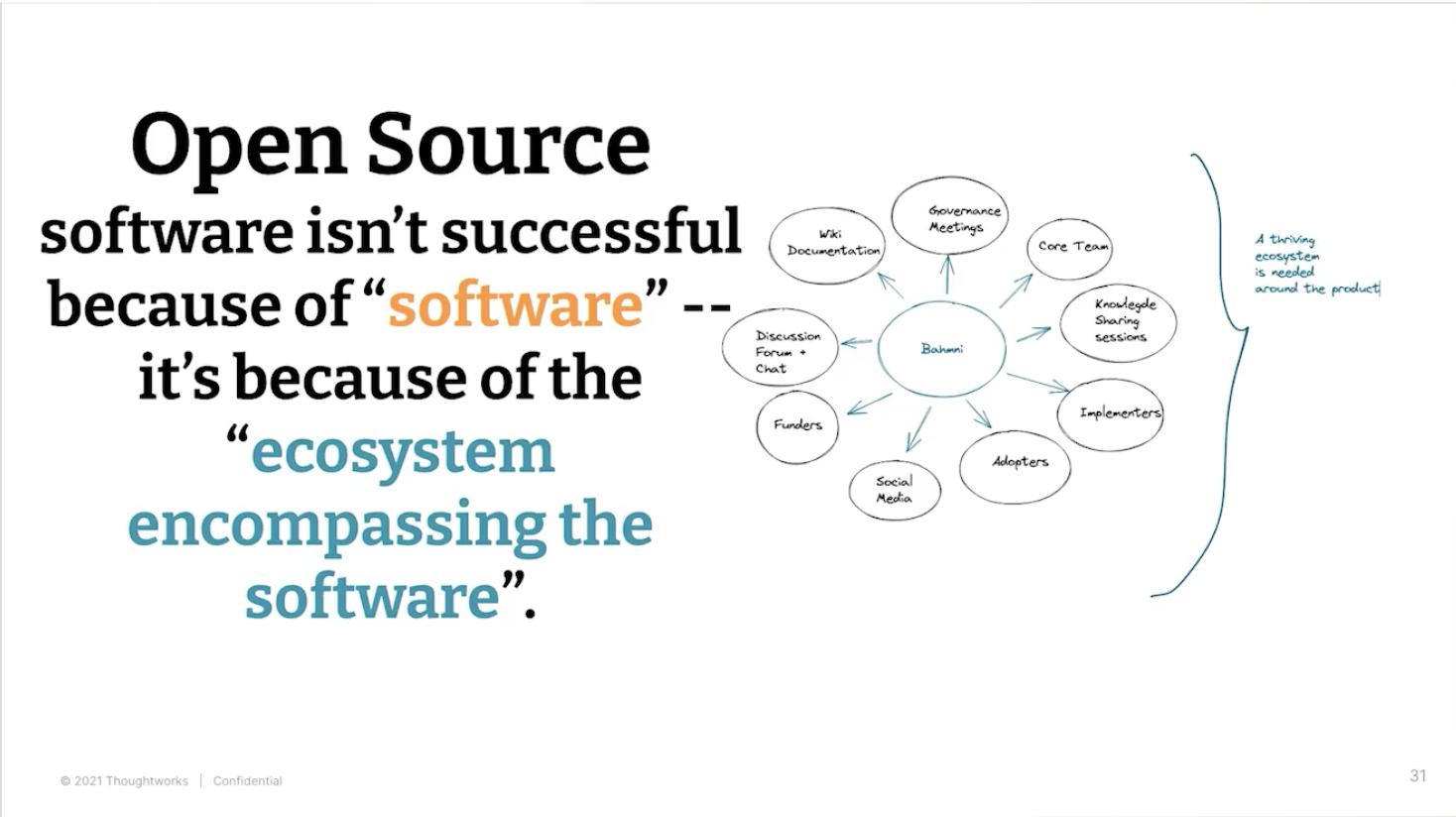From Chaos Engineering to Ethical XR, XConf India, this year’s regional edition of Thoughtworks’ annual technology event, saw passionate conversations about issues that are shaping the future of software. We hosted the event over three days — October 7, 8 and 9, 2021.
In addition to the enthusiastic Thoughtworkers who made presentations, we had distinguished speakers like Dr. Pramod Varma, CTO of EkStep, and Chief Architect of Aadhaar & India Stack. We also had the delight of hosting a thousand technologists, who listened eagerly, asked challenging questions and engaged in live chat. Here are the highlights.
Keynote: Why does yesterday's best practice become tomorrow's anti-pattern?
Neal Ford
Thoughtworks’ Meme Wrangler and Director Neal Ford kicked off XConf India 2021 with his talk that looks back to look forward into the future of software development.
He began with an omnipresent example of a ‘best practice’ that was the Qwerty keyboard that’s a bit of an anti-pattern now. He then investigated why this trend continues, including increased tech stack complexity, primordial abstraction ooze, code reuse abuse, strangling dependency management and the fundamental dynamic equilibrium of the software development ecosystem.
He recommended some solutions too: domain-centric architectures, immutable infrastructure, evolutionary architecture, incremental architectural change, favoring evolvability over predictability.
OpenNyAI: Open AI to help the Indian legal system
Prathamesh Kalamkar
Thoughtworks is the vision and tech partner of OpenNyAI, an initiative aimed at developing open source software and datasets to catalyze the creation of AI-powered solutions to improve access to justice in India. In this talk, data scientist Prathamesh outlined the bottlenecks the team faced while developing Indian Legal AI applications. “We need 350 years to clear the current backlog of pending cases in courts,” he said as context.


He also explored solutions with responsible and explainable AI for the Indian legal systems, developing NLP benchmarks and building a community that works together.
Getting ready for disasters using chaos engineering
Prashanth Ramakrishnan & Sunit Parekh
One of the ‘best practices’ that has emerged is to build predictable systems with monitoring, AI, etc. In this talk, Thoughtworkers Prashanth and Sunit argued that a predictable system is a myth. They believe that system failures are inevitable in today's world and the only way out is by building resilient systems. A practice they suggest to achieve this: Chaos engineering.
Chaos testing, a part of Site Reliability Engineering (SRE), is the art of simulating unexpected system failures to test system response and recovery plan. They also showed a live demo of chaos testing as network disruption on AWS with Chaos Toolkit and Istio for a workload deployed on a Kubernetes cluster.


Go serverless or stay on Kubernetes for deploying microservices?
Ashish Bhalgat & Sreedevi Vedula
Serverless architectures offer elasticity, low entry cost and faster time-to-market without the operational overhead of managing servers. They are effective for event streaming, IoT data processing, chatbots and cron jobs. Serverless provides 9’s reliability at the cost of a pay for use model. Building microservices should reap the benefit of an entire serverless stack including compute , data store, messaging , events. But in deployment of microservices how do they compare to the highly popular Kubernetes based container orchestration?


In this talk, Ashish and Sreedevi presented the trade-offs between Kubernetes vs serverless deployment architectures for microservices, giving the audience a clear framework to make decisions. They talked about leveraging Serverless modularize patterns so that switching between deployment models is as cheap as possible.
Keynote - Building for a billion: Aadhaar and India stack experience
Dr. Pramod Varma
Kicking off day two of XConf India 2021 was Chief Architect of Aadhaar & India Stack, Dr. Varma. He began by setting the context of India’s digitization history across financial exclusion, subsidy management challenges etc. “It took only six years for India to go from under 20% to over 80% of the population having bank accounts. India compressed a four-decade long developmental cycle to sub-decade. That would not have come, if we did not build digital infrastructure that allows combinatorial innovation over a non-linear time frame,” he said.
Over the course of the talk, he explored this across identity (Aadhaar), infrastructure (UPI), data and credentialing (digilocker) and the entire digital public infrastructure.
A shift from enterprise XR to ethical XR
Kuldeep Singh & Raju Kandaswamy
Modern enterprises must manage multiple layers of complexity across thousands of assets, workflows, and processes. There’s near-zero tolerance for issues that interrupt operations, damage profitability or put workers’ safety at risk. In such an environment, how does extended reality (XR) technologies fit in? With Metaverse kind of virtual environments gaining focus, what are the ethical challenges to privacy in XR? What efforts are being taken to address ethics in XR?


In their talk, Kuldeep and Raju explored the answer to that question across three specific dimensions:
Rise of XR — moving from nice-to-have to need-to-have
Managing enterprise complexity with XR
Need for ethical XR
Software supply-chain attacks and mitigations
Sindhuja Mahendran
Across software supply chains, the use of commercial off-the-shelf (COTS) products and open source software has grown exponentially. In parallel, mal-intended users are exploiting opportunities to reconfigure and change deployed systems unlike ever before. This can be in the form of tampering libraries, trojan software, compromise of SaaS servers, stolen code, exploiting vulnerabilities and so on.
To build a resilient software supply chain, enterprises need to identify and mitigate security risks. In this talk, Sindhuja drew from real-world examples to explore what these risks are, how you can identify them and what processes you can follow to mitigate them.
Lessons from eight years Bahmni EMR
Angshuman Sarkar & Gurpreet Luthra
Bahmni is an open source hospital management system that operates in more than 500 sites across the world. In this talk, Angshuman and Gurpreet shared the lessons they learned from building an open source product that spanned over one million lines of code in resource constrained environments.


The key points they covered were:
Designing for low resource environments
Preparing for and responding to entropy of software components through looser coupling with frameworks
Building public goods for long term sustainability of the core product and the implementations
Creating product-centric teams (rather than only feature-teams) to minimize tech debt & balance short-term needs with long-term direction
Importance of good UX and its tension with strong security and privacy, esp if considered too late in the development cycle
Nurturing the community and ecosystem to sustain an open source product
Design/Development principles for tech4good and FOSS.
Keynote - Explanation of how music theory works using code
Chris Ford
Wrapping up with a song was ThoughtWorks Spain’s Head of Technology, Chris Ford, who set out to show the audience that a developer is a musician too. He started with the basic building block of sound, the sine wave, and gradually accumulated abstractions culminating in a canon by Johann Sebastian Bach.
You had to listen to it to believe it!
The sessions recording is now available and can be accessed from here.
Disclaimer: The statements and opinions expressed in this article are those of the author(s) and do not necessarily reflect the positions of Thoughtworks.


















